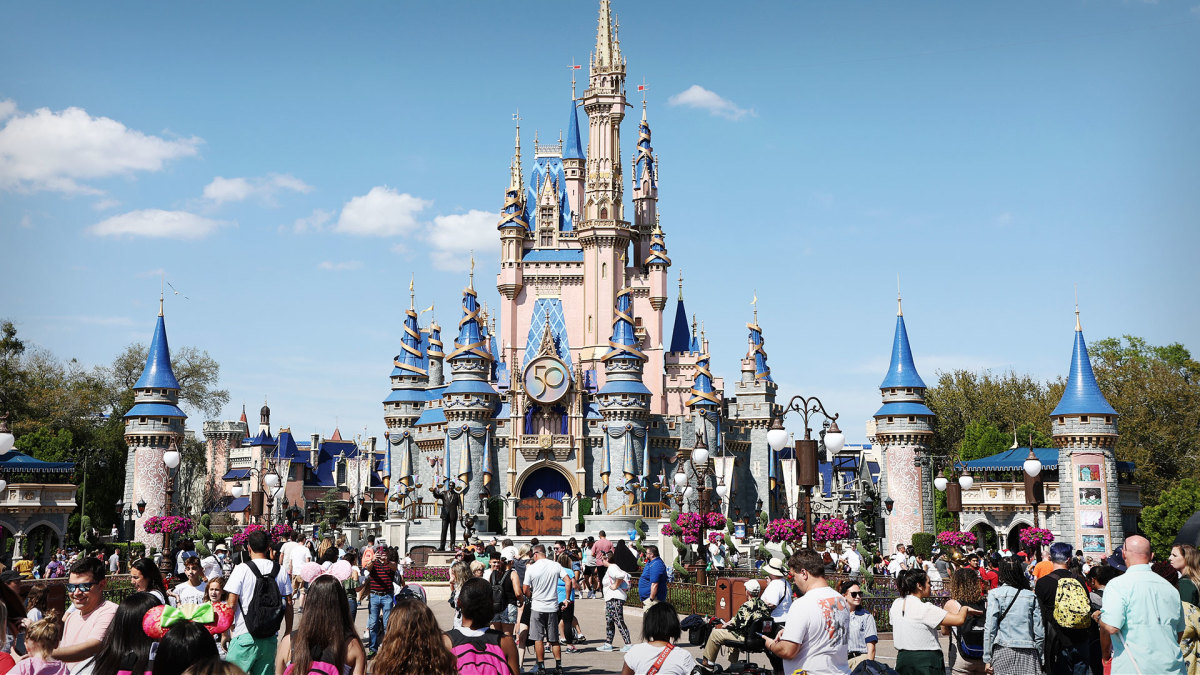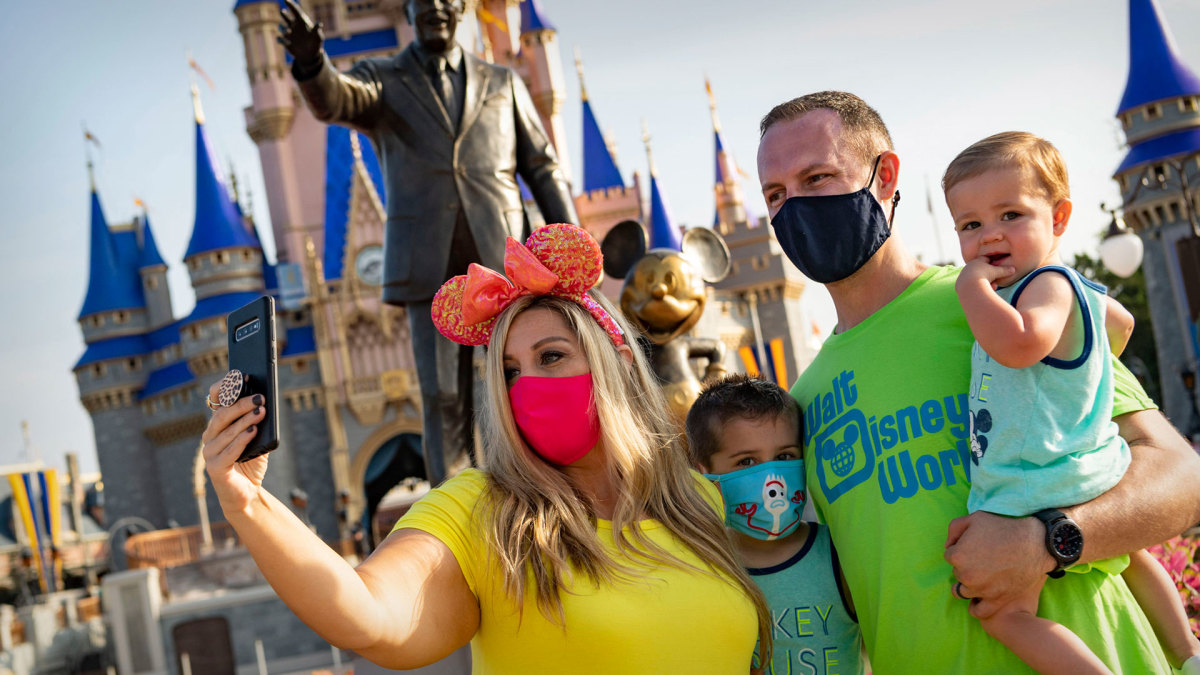
Florida Gov. Ron DeSantis and Walt Disney have reached a truce in their battle over control of the land Disney World sits on.
The two sides had battled for months after the right-wing governor took over the Reedy Creek Improvement District — the agency through which Disney maintained the land — and gave oversight to a board handpicked by the former presidential candidate.
DeSantis targeted Disney after former Chief Executive Bob Chapek spoke out against his so-called Don't Say Gay legislation. The conservative governor has made Disney a target in what he calls his war on woke.
Related: Carnival Cruise Line makes a key safety policy very clear
That's an ideological battle to take on companies that embrace diversity, equity and inclusion, or DEI. The governor has taken that fight very seriously: He signed a bill to ban DEI initiatives at Florida's state colleges and universities.
"If you look at the way this has actually been implemented across the country, DEI is better viewed as standing for discrimination, exclusion and indoctrination," DeSantis said during a news conference at New College of Florida in Sarasota. "And that has no place in our public institutions."
DeSantis has said that he sees DEI efforts as "discriminatory," according to NPR.
Walt Disney on the other hand has embraced DEI in its hiring practices and how it treats visitors to its parks. And its latest effort to be inclusive isn't being labeled as a DEI program, but it's an effort to make more theme-park visitors feel comfortable and have the best experience possible.

Image source: Matt Stroshane/Walt Disney World Resort via Getty Images
Disney changes its accessibility program
Walt Disney (DIS) wants to accommodate theme-park visitors who need special consideration, but not give them preferential treatment. The company's Disability Access Service program at Disney World and Disneyland aims to accomplish that.
"DAS is intended to accommodate a small percentage of guests who, due to a developmental disability like autism or similar, are unable to wait in a conventional queue for an extended period of time," the company says on its website.
"DAS doesn’t provide immediate access to experiences, but rather allows guests to request a return time for a specific experience that is comparable to the current standby wait."
The theme-park giant is changing how it establishes eligibility for its DAS program. Previously, those decisions were made before visitors entered its theme parks.
That service is still being offered, but the company is also making in-park changes, as of May 20 at Walt Disney World and June 18 at Disneyland.
Disney invests in Disability Access Services
Disney has to walk a fine line when it comes to any sort of accommodations. The company wants to provide help for people who need it but not aid people looking to take advantage of the system.
"We’re adding more Cast Members and investing in specialized training on each coast to help guests identify and better understand the recommended tools and options, based on their needs," the company says on its website.
The company has encouraged guests who qualify for these accommodations to contact Disney World and Disneyland through its website, which offers video chats.
"We are teaming with Inspire Health Alliance’s health professionals to help our Cast Members, as needed, determine eligibility for appropriate accommodations and ensure that these accommodations are provided only for the guests for whom they are intended," the company said, according to a Blog Mickey report.
Once a decision has been made on eligibility, that ruling will last for 120 days, twice the previous program's 60 days. In addition, Disney has limited the size of a DAS group (which includes the people visiting Disney World or Disneyland with the eligible guest) to no more than four, except for immediate family members.
The new program requires advance registration.
"Registration is available via live video chat. Speak with a Cast Member via live video chat to determine eligibility as soon as 30 days in advance of a park visit," the company wrote.







